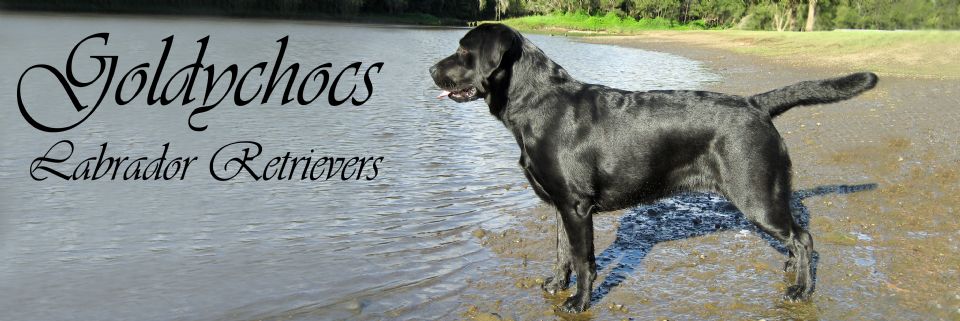Labrador Suitability
Most breeders have their own careful screening process to determine whether a buyer is suitable to own and care for their breed. It is also useful for you to know the kinds of things that your Labrador will need from you if you are to have a long and happy relationship for the next 12 plus years.
It is well documented that the Labrador has always been loved and admired for its keen and biddable nature. He is what is commonly called a “people-dog”, meaning that he is happiest around his family of people. From its beginnings, the breed was used to “serve” man in the toughest of conditions. Helping fishermen in freezing conditions with minimal food or shelter, the Labrador was reported to be durable, loyal, intelligent and ever ready to please his master.
Today’s Labrador hasn’t changed much in that regard and we have found the breed to be useful for a far wider range of tasks due to its inbuilt desire to “please” its owner/handler. Its versatility is further enhanced due to the fact that, unlike many breeds, it is not a “one-person” dog and can serve many people in many situations.
The Labrador is happiest when he is “working” because he can put his learned skills to good use and knows he will be well rewarded for his service. Put simply, he wants you to be happy with him! As a pet, he will happily fill any role you have in mind for him even if that is just being your loyal companion. Anything for you if you’ll just love him, pat him and tell him he is a “good dog”. There is nothing more satisfying than watching your trained Labrador complete a task, then have him sit there eagerly wagging his tail asking, “did I do well?”, awaiting his next instruction.
On the flipside, these traits make the Labrador unsuitable for some people and some situations.
For example,
Positive
I love that my dog always lays at my feet, never leaves my side and he is so loyal!
OR
Negative
Why doesn’t this dog give me some space, I can’t do anything without him following me!
If you are not looking for a dog that follows you around all day, wanting to be by your side and looking for your approval, then the Labrador isn’t for you. If you aren’t prepared to exercise your dog, train your dog, carefully monitor your dog’s diet or are just looking for a popular “accessory”, then a Labrador is not for you.
Some people describe the Labrador Retriever as being demanding and needy. I have read many stories of Labradors digging holes in their lawn so deep that they look like they will reach China. I have read numerous accounts from Labrador owners of their dog barking incessantly and stealing their owner’s clothes from the clothes line.
These ARE NOT typical Labrador behaviours!
These behaviours and others arise primarily from loneliness, boredom and lack of training. Think about it! The things that people love about Labradors - their love of people - can also be their biggest problem. They steal clothes from the line because they can smell their owner’s scent on the clothes and, if that is the only way they can get close to you, then you can’t blame them. Perhaps their natural drive to ‘retrieve’ is such that they want to find your scent on your clothes from the line?
If you intend to have your dog housed outside permanently, where it cannot see you, cannot hear you or interact with you, then I don’t believe this breed is for you. There are plenty of other breeds who are more independent that may suit you. Labradors traditionally love children and other animals too. Therefore, they don’t want to be locked away from all the action and noise of children because they can become depressed. This again leads to annoying and unsociable behaviours.
The Labrador is in my opinion the perfect pet for families. Most pet enquiries I have are from families who have children and believe that the Labrador is the best dog to have around children. Perhaps they had a Lab as a child and have many happy memories that they would like their own children to experience. If the Labrador isn’t trained, they can also be very excitable around children and cause some problems, especially when the children are running around and making lots of fun noises. If the Labrador is allowed to run with small children without supervision, you will often find small children knocked over by the exuberant Labrador. Your Labrador must be taught not to jump up, especially for the sake of the kids. Being a heavy dog, they don’t necessarily know their own strength.
The trainability of the Labrador makes it the perfect inside pet. You can train him with consistency, time, patience and rewards to only go in areas of your house that you allow. For example, you may not want your Labrador to go on any carpeted areas - this can be easily taught. I recommend that whatever your boundaries are in the house, you never let your dog on the furniture. I believe that dogs associate height with superiority and “order” within their pack. Most dog owners that are not experienced at understanding and controlling ‘pack order’ need to make sure their dog is never allowed to be at the same “level” in the pack if they expect him to respect their authority and leadership. There are unlimited resources already available in print and over the internet for inexperienced dog owners to gain the knowledge needed to train their dog so I don’t intend to go into that here.

My favourite book for learning how to understand and train your dog is by Jan Fennell from the UK, called “The Dog Listener”. The book is readily available here and teaches you some basic techniques to communicate with your dog in your dog’s language. Her methods are based on the world famous Monty Roberts’ “Horse Whisperer” techniques so there is no "whip" involved - these are gentle methods.
The important thing is that you realise that if you don’t train your Labrador from an early age, you may end up with a “monster”. If your Labrador is to live inside, please be prepared for your vacuum cleaner to get a workout because they do shed a lot of hair.
A Labrador can make an equally happy pet if it lives outside the home provided that you spend plenty of time with him and he is still able to hear you and see you and your family. For example, I would never sell a puppy to an owner who has a small backyard with the only access to the house being a solid wooden door. For an outside dog, the ideal situation would be a back patio with a glass/screen door to access the house - you will find your Labrador spending most of his time sleeping right in the doorway in an attempt to be as close to the family as possible and still be able to hear what is going on.
In summary, you may not want your pet to be an obedience star but a certain level of training is absolutely necessary for the Labrador Retriever if you want to enjoy a long, happy, workable relationship with a dog that you can be proud of for the duration of his life.
You really couldn’t get an easier breed to train and he is just waiting for you to tell him what you want so he can give it to you.
Enjoy the journey!
